
Shantadevi rakes in mega bucks from penny stock Khoobsurat Ltd
Shantadevi Bimalchand Jain, a senior citizen in Nagpur eking out a living from fixed deposits and bonds, suddenly developed an interest in penny stocks.
She consulted her tax counsel, a gentleman named Hemant Surjan, and sought advice on what stocks to buy.
Hemant Surjan was not only a tax expert. He was also a wizard in stocks.
He advised Shantadevi to rush to Dalal Street and aggressively buy an unknown penny stock called Khoobsurat Ltd.
Shantadevi followed the wise counsel of Hemant Surjan and bought a truckload of Khoobsurat Ltd at the throwaway price of Rs. 5 each.
Khoobsurat Ltd becomes 100-bagger in 24 months
To Shantadevi’s good luck, Khoobsurat Ltd surged from Rs. 5 to Rs. 485 in only two years.
At this stage, Hemant Surjan advised Shantadevi to encash the massive gains that had fortuitously come her way.
Naturally, the massive gains were claimed to be “long-term capital gains” which are tax-free under the Income-tax Act.
Tax Officials are unimpressed with Shantadevi’s stock picking skills
Sadly for Shantadevi, the Income-tax Officer was not convinced that either Shantadevi or Surjan had the requisite skills to rake in multibagger gains from a penny stock.
He suspected that the duo had hatched a conspiracy to launder the ill-gotten wealth into tax-free capital gains.
He accordingly taxed the entire capital gains as business profits.
Penny stocks transaction is bogus: Tax Tribunal
Shantadevi rushed to the Tax Tribunal in the hope that her carefully conceived game plan of laundering unaccounted income as tax-free capital gains would be salvaged.
Shamim Yahya, the judge of the Tax Tribunal in Nagpur, is a seasoned professional who can smell a scam from a mile.
“It is a clear case where the assessee had indulged in bogus and dubious share transaction meant to account for the bogus and undisclosed income in the garb of long term capital gain,” he observed in a dry tone, dashing Shantadevi’s hopes.
“There is no justification whatsoever that the shares of an unknown company of Rs. 5/- can be sold within two years time at Rs. 485/- without there being any reason on record. This unexplained spurt in the value of unknown company shares is beyond preponderance of probability,” he observed for good measure.
“These transactions of the assessee can by no stretch of imagination be considered as investment transactions. They are only make believe transaction. Hence I do not find any infirmity in the revenue taxing the receipt in this regard,” the Judge observed in a firm tone.
“The fantastic sale price realisation is not at all humanly probably, as there is no economic or financial basis, that a share of little known company would jump from Rs. 5/- to 485/-,” he said even as he dismissed the appeal.
High Court puts final nail on coffin
Coincidentally, Shantadevi’s appeal in the Nagpur High Court came up before an all-women Judge Bench comprising of Justices Vasanti A Naik and Swapna Joshi.
The Lady Judges also appear to be well versed with the nuances of the stock market and penny stocks.
“The assessee had indulged in a dubious share transaction meant to account for the undisclosed income in the garb of long term capital gain,” the Lady Judges observed.
“The assessee had not tendered cogent evidence to explain as to how the shares in an unknown company worth Rs. 5 had jumped to Rs. 485 in no time,” they added.
“… The fantastic sale price was not at all possible as there was no economic or financial basis as to how a share worth Rs.5 of a little known company would jump from Rs.5 to Rs. 485,” the Lady Judges said, making it clear that they have astute knowledge about the inner workings of the stock market.
End of menace of tax evasion from penny stocks?
It is worth recalling that SEBI, the Finance Ministry and the Stock Exchanges are working in tandem to plug the loophole of penny stocks being used as a tax evasion gateway.
In August 2017, the Ministry of Corporate Affairs (MCA) had identified 331 suspected shell firms and shared the data with the SEBI, which took a prompt action and directed stock exchanges to immediately restrict trading in the identified companies.
SEBI has also drawn up stringent norms for companies prone to price manipulation and widening the scope of Graded Surveillance Measures, which are applied to securities that witness an abnormal price rise not commensurate with their financial health and fundamentals.
Hopefully, the recent historic case of Sanjay Bimalchand Jain/ Shantadevi vs. Income-tax department will strengthen the arms of the authorities and help them to put an end to the menace of tax evasion!

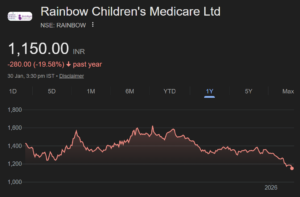
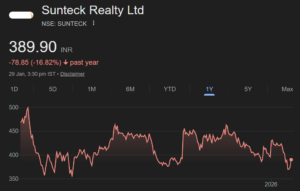
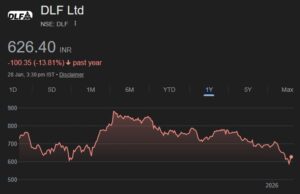

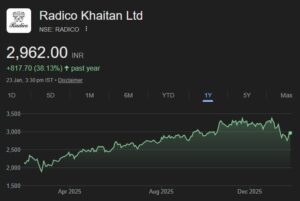
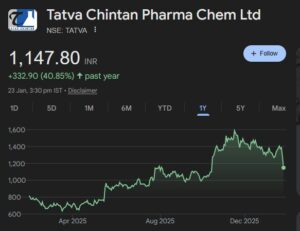
The markets are sometimes irrational. One of my small cap (400 crore market cap) stocks has tripled in a year’s time. Is there a possibility of IT dept asking me to provide cogent evidence to explain as to how the shares of a small cap company could give 300% returns in a year’s time?
It can be easily confirmed if the stock did go from Rs. 5 to Rs. 485 by looking at the the stock exchange data files. If it did, I see no reason for a minority shareholder to explain how this price increase happened. This question is best answered by the exchange.
How this court/bench will justify Jai shah’s rise…..
Perhaps on same logic they should ask
How can you question the individual for a stock moving from 5/- to 485/-. Whether she knows or not is a different story. But there are so many cases where people invest in penny stocks and have lost fortune. Will court come to their rescue ? It is really strange to question an individual investor on the stock price rise rather than catching the real culprits. I am not saying to let go, but who is the real culprit and what the SEBI was doing all these while. There are so many instances of useless company stocks moving multifold in no time. How will SEBI justify that ? and do you keep checking on the each and every individual person investing init. It might be greed, it might ignorance on the individual part, but taxing is strange.
This is absoulutely wrong. How can one asj question which stock i buy unless there is manipulatio. Does these IT guys and High court even have idea what is stock market?
see the judgement
http://itatonline.org/archives/sanjay-bimalchand-jain-vs-pr-cit-bombay-high-court-bogus-ltcg-from-penny-stocks-the-assessee-has-not-tendered-cogent-evidence-to-explain-how-the-shares-in-an-unknown-company-worth-rs-5-had-jumped-to/
They are shares in private limited companies which are not quoted in the market and can easily be manipulated.
Ah, this vital piece of information was not mentioned in the article.